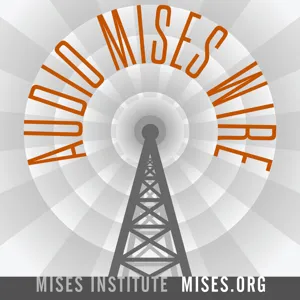Podcast Summary
Common Good in Liberalism: Liberalism prioritizes the common good for society as a whole, not just individual rights, to prevent societal destruction from special group preferences.
Liberalism, as a political philosophy, is not solely focused on individual rights, but also on what is good for society as a whole. Contrary to the progressive argument that civil rights laws are necessary to protect individual liberties, liberal thinker Ludwig von Mises believed that the pursuit of the common good is essential to liberalism. This perspective may seem counterintuitive to progressives, who argue that individual rights should be prioritized even if it means conferring special protections on certain identity groups. However, Mises argued that this line of reasoning could lead to the destruction of society, as it allows for the reconstruction of society according to the preferences of any particular group. Instead, liberalism has always aimed to promote the welfare of all, not just special groups. This notion of the common good is also reflected in Mises' work "Human Action," where he explains that conflict between different groups is inherent in human nature, and that the state exists to mitigate this conflict and promote the good of the whole.
Civil Rights Trap: The focus on individual and group rights through civil rights litigation can fuel conflict and create a 'civil rights trap,' hindering the pursuit of peace and the greater good.
The pursuit of individual and group interests can lead to endless conflicts and the scarcity of resources creates a dilemma with no peaceful solution. Civilization and peace are essential for the greater good, but the current focus on promoting individual and group rights through civil rights litigation can actually fuel conflict instead. The debate often shifts from achieving peace to defining and protecting specific groups, creating a "civil rights trap." This trap, as depicted by Murray Rothbard, can be seen in the current political climate where various groups fight for their own interests, often at the expense of the greater good. The emergence of new identity groups only adds to the complexity of the issue. To break this cycle, we must refocus on the common interest in civilization and work towards peaceful coexistence.
Group Interests vs. Peace: Protecting group interests through laws leads to conflict, repealing such laws and focusing on productivity and exchange can lead to true peace.
The pursuit of peace through laws protecting group interests leads to conflict and preparation for fight, rather than true peace. According to Mises, this is because the clash of group interests cannot be resolved through philosophical principles or the creation of more special groups. Instead, the only way out of this cycle of conflict is by repealing laws that protect group interests, starting with civil rights laws. The path to the greater good for all lies in productivity and exchange, which allow for the division of labor and the removal of natural conflicts of interest. Mises argues that friendly relations between people are possible due to the higher productivity of the division of labor, which creates a common interest in preserving and intensifying social cooperation. This perspective challenges the foundations of arguments for civil rights. For more insights, visit Mises.org.
